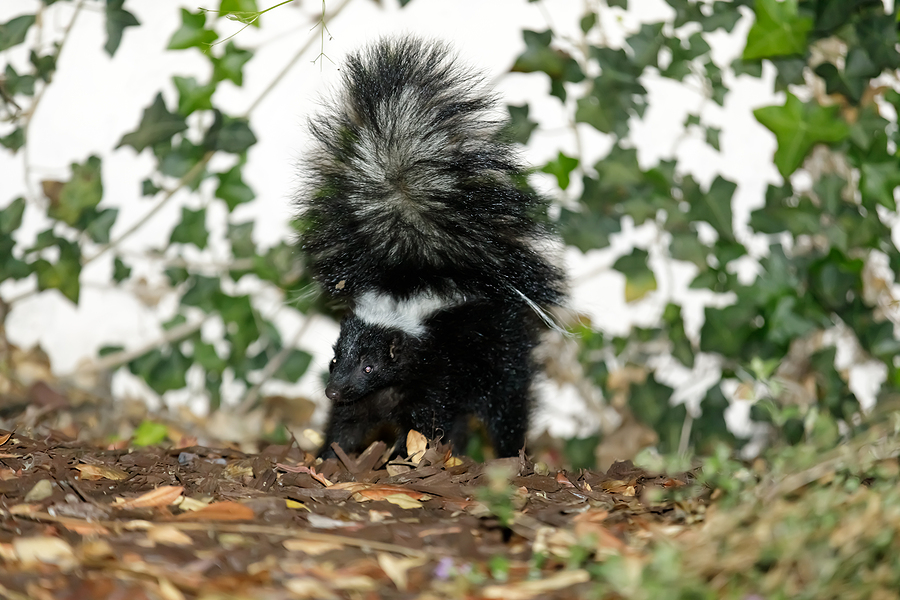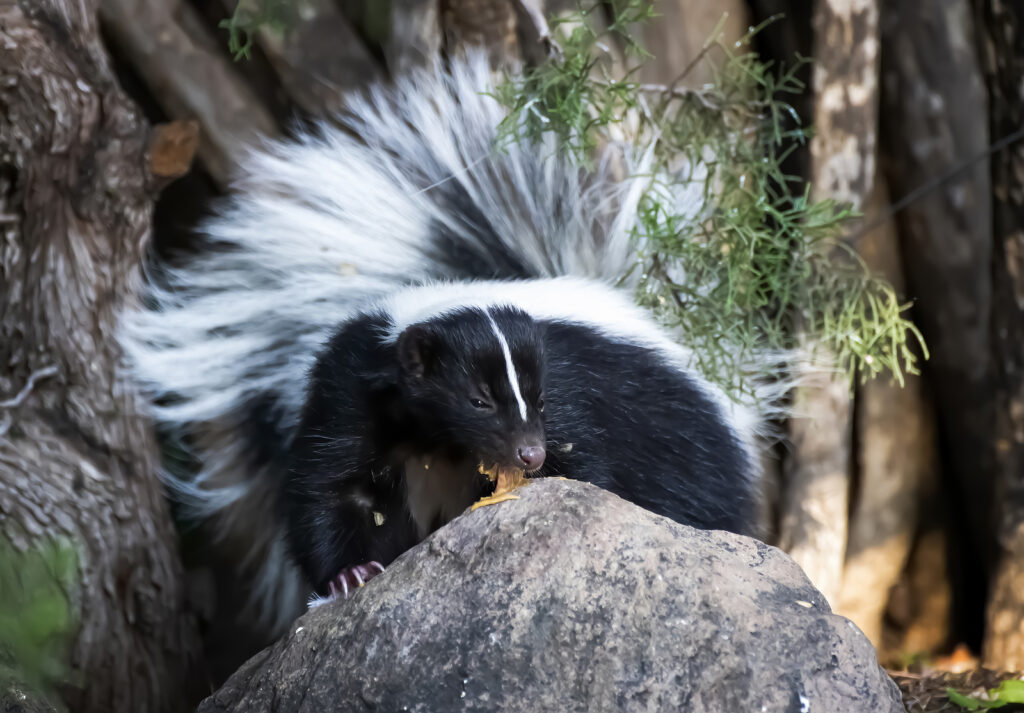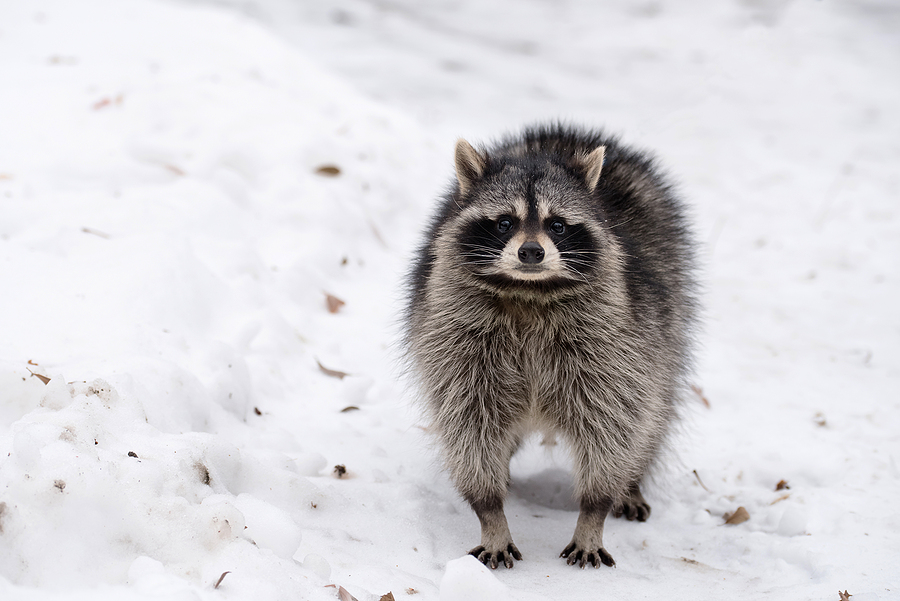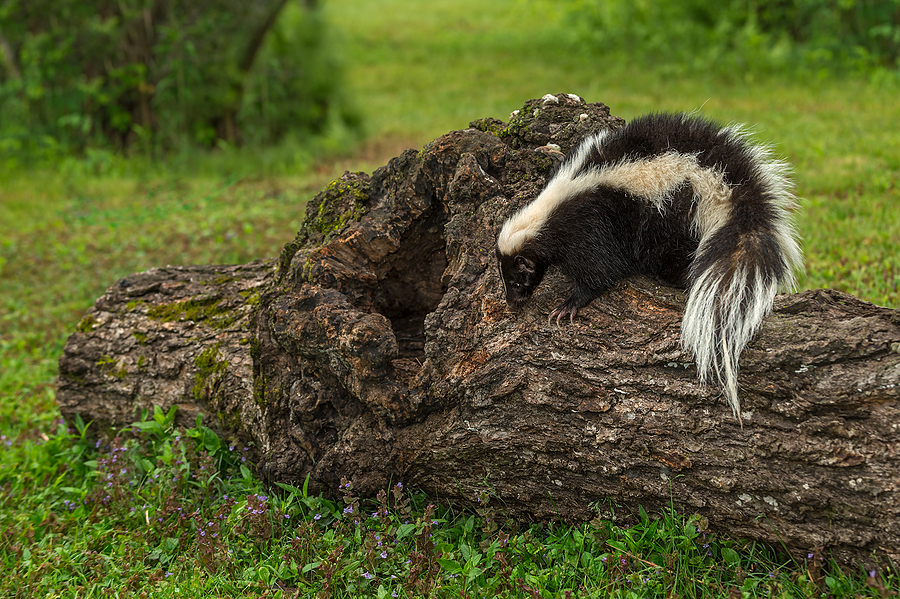It’s a pet owner’s nightmare – your beloved dog, cat, or other furry friend has had a run-in with a skunk resulting in an unbearable odor. That unmistakable skunk smell can permeate your entire home, becoming an unwelcome reminder of your pet’s unfortunate encounter. But don’t worry, you’re not alone in this battle against the pungent skunk odor.
In this blog post, we will guide you through a step-by-step process on effective skunk spray removal, helping you restore your pet’s freshness and your peace of mind. Let’s dive into the world of de-skunking and turn this nightmare into a manageable and transient incident.
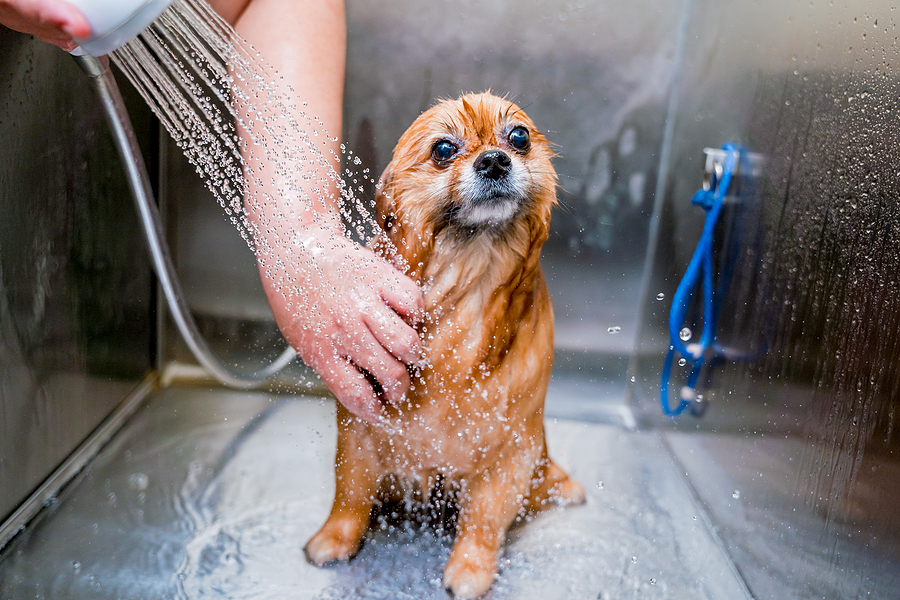
Understanding Skunk Smell
Before diving into the removal process, it’s essential to understand what causes that pungent smell. A skunk’s scent is produced by an oily liquid called mercaptan, which is found in their anal glands. When threatened, a skunk can spray this liquid as a defense mechanism, creating that distinct and potent odor. The smell can linger for days if not properly addressed, making it crucial to act quickly.
Step 1: Containment
The first step in removing skunk smell from your pet is containment. Now that your furry friend has returned home with the dreaded scent, it’s essential to isolate them in an area where they cannot spread the odor further. This could be a bathroom or a crate, for example.
Step 2: Prepare the De-Skunking Solution
After containing your pet, it’s time to prepare the de-skunking solution. A homemade remedy that has proven to be effective is a mixture of hydrogen peroxide, baking soda, and dish soap. Mix one quart of hydrogen peroxide with ¼ cup of baking soda and a teaspoon of dish soap in a bucket. The solution should be used immediately as it will lose its effectiveness over time.
Step 3: Wet Your Pet
Using a hose or bucket, dampen your pet’s fur with water before applying the de-skunking solution. Avoid getting water in your pet’s eyes, nose, and ears.
Step 4: Apply the Solution
Once your pet is wet, apply the de-skunking solution to their fur. Make sure to work it into their coat thoroughly, avoiding contact with sensitive areas like eyes and mouth.
Step 5: Rinse Thoroughly
After allowing the solution to sit for a few minutes, rinse your pet’s fur thoroughly with water. It’s essential to get rid of all the solution, as any residue can irritate their skin and cause further discomfort.
Step 6: Repeat if Necessary
In some cases, one round of de-skunking may not be enough. If your pet still has a lingering smell after the first attempt, repeat the process until the odor is gone.
Additional Tips for Skunk Smell Removal
▷ When handling the de-skunking solution, make sure to wear gloves to avoid contact with your skin.
▷ If your pet’s eyes were exposed to the skunk spray, rinse them gently with water. If irritation persists, seek veterinary help.
▷ Avoid using tomato juice as a de-skunking remedy. Despite its popularity, it is not very effective in removing the odor.
▷ To prevent future skunk encounters, keep your pet on a leash and avoid letting them out at night when skunks are most active.
Skunk Control Tips
If your area has a high skunk population, it’s essential to take preventative measures to avoid future skunk encounters. Here are some tips for skunk control:
▷ Seal any openings or holes around your home that could serve as potential den sites for skunks.
▷ Keep trash cans tightly sealed and remove food sources like bird feeders from your yard.
▷ Consider using a skunk repellent to deter them from entering your property.
▷ Hire a professional wildlife removal and control company for effective skunk control assistance.
If you are having recurring issues with skunks, it’s best to contact an Indianapolis wildlife control company for professional help.
Conclusion
Removing skunk smell from your pet may seem like an overwhelming task, but with the right approach, it can be done effectively. By following these steps and tips, you can quickly and safely get rid of the unpleasant odor, restoring your pet’s freshness and eliminating any reminders of their unfortunate encounter with a skunk.
Are you dealing with frequent skunk visitations nightly? Contact Modern Wildlife Control at 317-847-6409 for safe and effective skunk removal and control in Indianapolis, Indiana. Our wildlife removal services are humane, effective, and available for both residential and commercial clients.
Related Posts:
Skunk Prevention Tips for Homeowners
Frequently Asked Questions About Skunk Smell
4 Safe Methods of Getting Rid of Skunks

